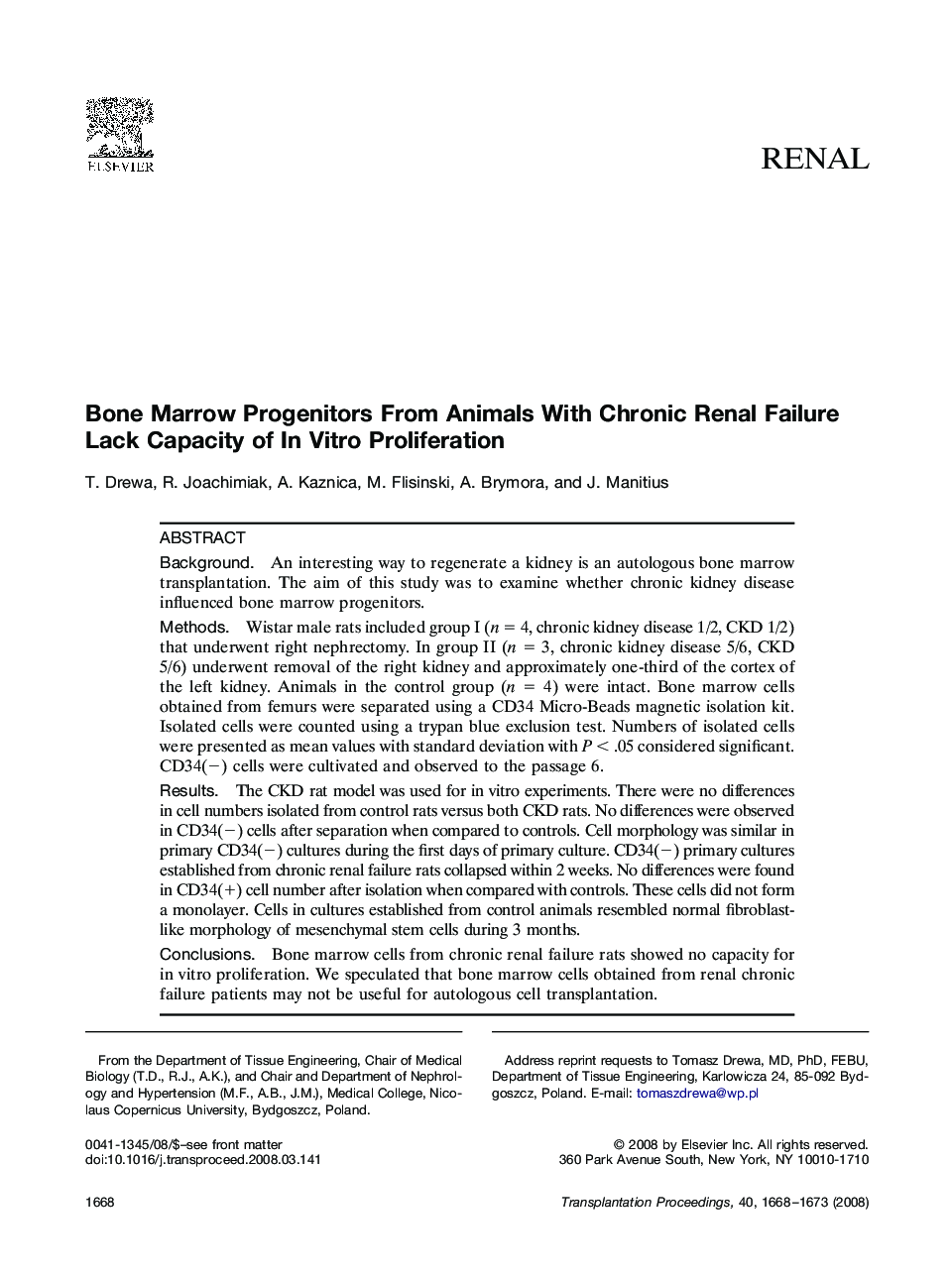| Article ID | Journal | Published Year | Pages | File Type |
|---|---|---|---|---|
| 4258281 | Transplantation Proceedings | 2008 | 6 Pages |
BackgroundAn interesting way to regenerate a kidney is an autologous bone marrow transplantation. The aim of this study was to examine whether chronic kidney disease influenced bone marrow progenitors.MethodsWistar male rats included group I (n = 4, chronic kidney disease 1/2, CKD 1/2) that underwent right nephrectomy. In group II (n = 3, chronic kidney disease 5/6, CKD 5/6) underwent removal of the right kidney and approximately one-third of the cortex of the left kidney. Animals in the control group (n = 4) were intact. Bone marrow cells obtained from femurs were separated using a CD34 Micro-Beads magnetic isolation kit. Isolated cells were counted using a trypan blue exclusion test. Numbers of isolated cells were presented as mean values with standard deviation with P < .05 considered significant. CD34(−) cells were cultivated and observed to the passage 6.ResultsThe CKD rat model was used for in vitro experiments. There were no differences in cell numbers isolated from control rats versus both CKD rats. No differences were observed in CD34(−) cells after separation when compared to controls. Cell morphology was similar in primary CD34(−) cultures during the first days of primary culture. CD34(−) primary cultures established from chronic renal failure rats collapsed within 2 weeks. No differences were found in CD34(+) cell number after isolation when compared with controls. These cells did not form a monolayer. Cells in cultures established from control animals resembled normal fibroblast-like morphology of mesenchymal stem cells during 3 months.ConclusionsBone marrow cells from chronic renal failure rats showed no capacity for in vitro proliferation. We speculated that bone marrow cells obtained from renal chronic failure patients may not be useful for autologous cell transplantation.
